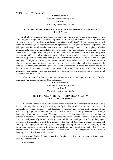| dc.contributor.author |
Barros, Garcia+B. |
|
| dc.date.accessioned |
2017-05-19T04:17:22Z |
|
| dc.date.available |
2017-05-19T04:17:22Z |
|
| dc.date.issued |
2017-05-19 |
|
| dc.identifier.uri |
http://elibrary.udsu.ru/xmlui/handle/123456789/16056; https://elibrary.ru/item.asp?id=29240539 |
|
| dc.description.abstract |
This article aims to raise the importance of the introduction and integration of Russian as a foreign language in the early learning age in Spain. The article reviews some theories and proposals on foreign languages and language acquisition, and certain particularities of the Russian language that should be noticed in every model of learning Russian as a foreign language not only at an early age. We focus on current efficient neuroscience-based methods to develop a learner’s communicative competences and skills. Special attention is given to the relevance and power of play and creativity in early childhood development in foreign languages. The goal of this article is to contribute not only to the study of Russian as a foreign language and the way this language could be integrated in language learning in Spain, but also to highlight the importance and convenience to introduce it in early language learning in Spain. Based on the present article we would look forward to further studies of the integration of the Russian language in the Spanish education system. |
ru_RU |
| dc.language.iso |
es |
ru_RU |
| dc.subject |
foreign+language+learning |
ru_RU |
| dc.subject |
Russian+as+a+foreign+language+in+Spain |
ru_RU |
| dc.subject |
early+learning |
ru_RU |
| dc.subject |
neuroeducation |
ru_RU |
| dc.title |
RUSSIAN+AS+A+FOREIGN+LANGUAGE+AND+EARLY+LEARNING+IN+SPAIN |
ru_RU |
| dc.type |
Article |
ru_RU |
